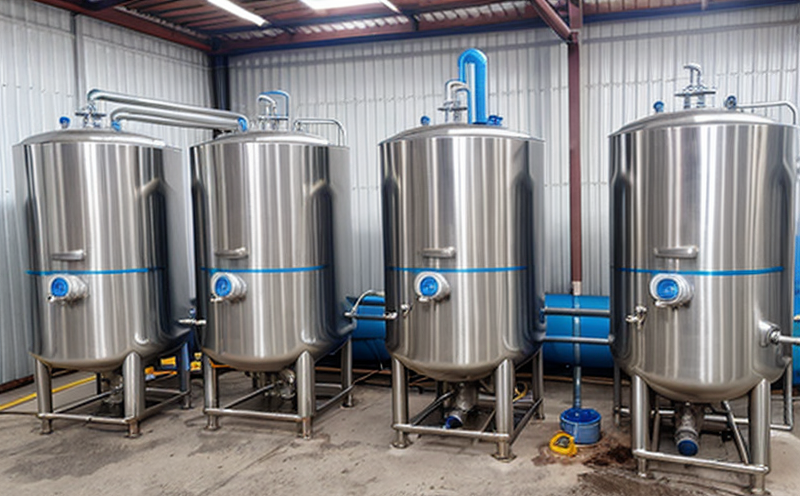ASTM D5390 Sludge Volume Index Test in Cooling Water
The ASTM D5390 Sludge Volume Index (SVI) test is a critical analytical method used to evaluate the settling properties of activated sludge in wastewater treatment plants, particularly relevant for cooling water systems. This test helps determine if the biological solids are settling properly and if they can be effectively removed through filtration or sedimentation processes.
The SVI value provides insight into the efficiency of the biological processes within a plant's treatment system. High SVI values suggest that the biological solids may not settle well, which could lead to excess sludge in the cooling water systems, potentially causing operational issues such as fouling and reduced heat transfer efficiency. Conversely, low SVI values might indicate insufficient biological activity or poor wastewater treatment.
The test is particularly important for industries reliant on efficient cooling water management. By monitoring SVI levels, facilities can ensure that their cooling towers are operating at peak performance, thereby optimizing energy use and reducing operational costs. This method supports sustainable practices by minimizing the environmental impact of industrial processes.
For this service, our laboratory adheres to the stringent requirements outlined in ASTM D5390 to ensure accurate and reliable results. The test involves measuring the volume of a known mass of sludge after it has settled for 20 minutes under controlled conditions. This value is then used to calculate the SVI.
The cooling water systems are integral components of many industrial processes, especially in power generation, chemical manufacturing, and food processing industries. By maintaining optimal SVI levels, these facilities can avoid costly downtime due to equipment failures or inefficiencies. The test results provide actionable insights that help managers make informed decisions about operational adjustments.
The ASTM D5390 method is widely recognized for its precision in assessing the settling characteristics of activated sludge. Our team of experts uses state-of-the-art equipment and follows strict protocols to ensure compliance with this standard. This ensures that the results are not only accurate but also comparable across different facilities, promoting industry best practices.
The test has applications beyond just cooling water systems; it can be used in wastewater treatment plants to optimize biological processes. By providing accurate SVI values, our laboratory assists clients in maintaining a balance between biological activity and settling efficiency, which is crucial for sustainable water management.
- International Acceptance: The ASTM D5390 method is internationally recognized and widely used by organizations such as the Environmental Protection Agency (EPA), the World Health Organization (WHO), and various national standards bodies. Its acceptance ensures that the results are universally applicable and comparable.
The test's relevance extends to numerous sectors, including power generation, chemical manufacturing, food processing, and more. By ensuring optimal SVI levels in cooling water systems, these industries can enhance their operational efficiency while minimizing environmental impact. Our laboratory’s expertise in this area positions us as a trusted partner for clients seeking to optimize their water management processes.





